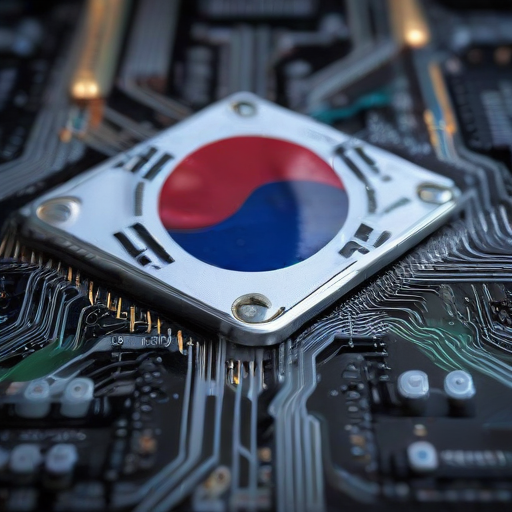According to analysts from Bank of America, South Korea is currently one of the few economies experiencing a notable increase in productivity due to advancements in artificial intelligence (AI). The semiconductor sector plays a crucial role in this transformation, accounting for 17% of the country’s total exports. Recent reports indicate that exports have surged over 50% year-over-year, positioning South Korea as a leading beneficiary of the AI wave. Continued investment in AI research and development, along with a rising number of AI-related patents, is expected to solidify South Korea’s forefront status in AI adoption.
However, the analysts cautioned that escalating geopolitical tensions, particularly between the U.S. and China regarding semiconductor chips, could pose significant challenges to South Korea’s burgeoning growth. Although South Korea has diversified its chip exports to regions beyond China, over 30% of its semiconductor exports still go to China and Hong Kong, with a similar share heading to the U.S.
Further complications may arise if the U.S. implements additional trade restrictions on exports of advanced chips to China. Such measures could adversely impact memory semiconductor exports from South Korea. Additionally, South Korean chip manufacturers rely on China for essential components and equipment, making them vulnerable to potential disruptions in the supply chain.
The U.S. government has reportedly requested South Korea to limit exports of specific chipmaking equipment and technologies to China, specifically targeting memory chips and advanced logic chips. South Korean officials are deliberating over this request, considering the potential impact on major corporations like Samsung and SK Hynix that have established operations in China.
In a related development, the Biden administration is contemplating the use of an export control known as the foreign direct product rule, which would restrict the export of goods that include a significant proportion of U.S. intellectual property, further complicating the landscape for allied nations engaged in chip production.
Despite the challenges posed by geopolitical tensions, South Korea’s strategic investments in AI and the semiconductor industry present promising prospects. With a strong commitment to innovation and adaptability, South Korea may navigate these turbulent waters, potentially emerging even stronger in the global semiconductor market.
This situation underscores the intricate relationship between technology, trade, and international relations. Hopecully, South Korea can find a balance that sustains its growth while fostering collaboration among global partners.
